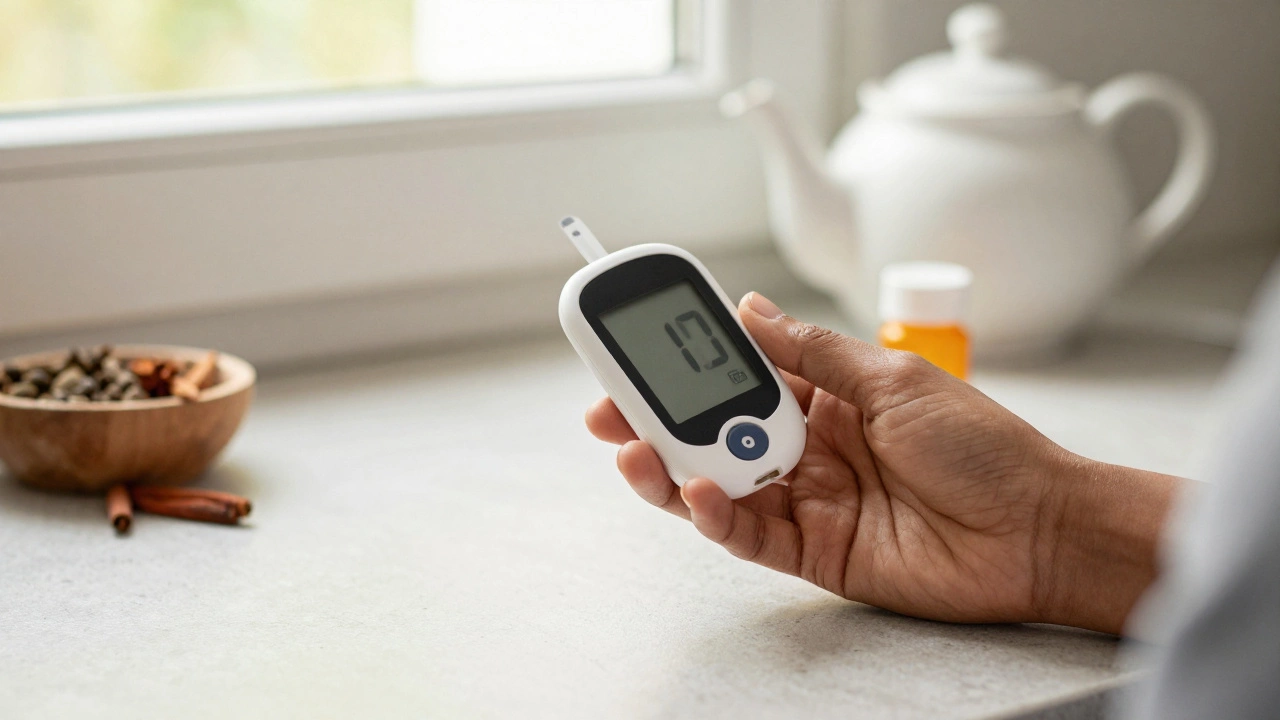Metformin isn't a weight loss drug, but many people with type 2 diabetes experience modest weight loss while taking it. Learn why this happens, what studies say, and why it's not recommended for weight loss without diabetes.
Read MoreDiabetes Medication – What You Need to Know
If you’ve been told you have diabetes, the first question on most minds is: which pill will help me? In India there are several options, each working a little differently. Knowing the basics can save you from confusion, unwanted side effects, and wasted money.
Common Types of Diabetes Medication
Metformin is the go‑to first‑line drug for type 2 diabetes. It lowers glucose production in the liver and improves the body’s response to insulin. Most Indian doctors start patients on a low dose and increase it gradually, which keeps stomach upset to a minimum.
Sulfonylureas (like glimepiride or gliclazide) push the pancreas to release more insulin. They work fast, but they can cause low blood sugar if you skip meals. If you’re active or have irregular eating patterns, ask your doctor if a sulfonylurea is right for you.
DPP‑4 inhibitors (e.g., sitagliptin, vildagliptin) block an enzyme that breaks down incretin hormones. The result is a modest drop in blood sugar without much risk of hypoglycemia. These are popular in metro cities because they’re easy on the stomach.
SGLT2 inhibitors (like empagliflozin, dapagliflozin) help kidneys flush excess glucose out in urine. Besides lowering sugar, they can help with weight loss and lower blood pressure. Watch out for urinary infections – staying hydrated helps.
GLP‑1 receptor agonists (injectable options such as liraglutide) mimic a gut hormone that boosts insulin, slows digestion, and reduces appetite. They’re powerful for weight loss but require daily or weekly injections.
How to Pick the Right Medicine
First, get a clear picture of your blood‑sugar numbers. If your A1C is just above target, metformin alone may be enough. If it’s higher, a combination of drugs often works better than increasing the dose of one pill.
Second, think about your lifestyle. Do you travel a lot? Oral pills are easier than injectables. Do you have kidney issues? Some drugs, like SGLT2 inhibitors, need dose adjustments or may be avoided.
Third, check for side‑effects that matter to you. Metformin can cause mild diarrhea, which usually settles. Sulfonylureas may cause weight gain. If you’re concerned about weight, an SGLT2 inhibitor or GLP‑1 agonist might suit you better.
Finally, consider cost. Generic metformin is cheap and widely available across India. Newer drugs like SGLT2 inhibitors are pricier but many insurance plans now cover them. Ask your pharmacist about any discount programs.
Remember, medication is only one piece of the puzzle. Pair your pills with a balanced diet, regular walks, and proper sleep. Monitoring your blood sugar at home lets you see how each drug affects you, so you can talk to your doctor with real data.
Bottom line: there’s no one‑size‑fits‑all diabetes medication. Start with the basics, listen to how your body reacts, and tweak the plan with your doctor’s help. With the right mix, you can keep your sugar levels stable and live a healthier, more active life.
Explore top alternatives to metformin, including SGLT2 inhibitors, GLP‑1 agonists, and DPP‑4 inhibitors, with benefits, side effects, and how to choose the right diabetes medication.
Read MoreLearn what the most popular diabetes medication is in 2025, why doctors prefer it, how it works, side effects, and practical tips for managing type 2 diabetes.
Read MorePeople are worried and confused about why metformin, a common diabetes pill, is being stopped or recalled in some places. This article explains the real reasons behind the discontinuation, focusing on safety concerns and regulatory decisions. It also breaks down how this might affect your treatment and what steps you can take next. You'll get straightforward tips for managing your diabetes if you're impacted. Get all the info you need to stay healthy and in control.
Read MoreWhen you’re deciding on diabetes medication, safety isn’t just a buzzword—it’s a lifeline. This article breaks down which diabetic medicines are considered safest and why, with a close look at side effects, real-world experience, and practical tips. You’ll see how the latest medicines stack up next to old favorites and learn what to chat about with your doctor. We’ll cut through the medical jargon and focus on what actually matters in everyday life. No sugarcoating, just straight answers.
Read MoreManaging diabetes isn't a one-size-fits-all challenge. This article breaks down the hardest type of diabetes to control, digging into the reasons, the meds involved, and the everyday ups and downs. You'll find useful tips from real-life experiences and clear facts, not just textbook theories. If you're wondering why some cases seem so stubborn or if your struggles are normal, this is the read you need. Get the lowdown without the medical jargon.
Read MoreNavigating diabetes means understanding what foods and medications could put your health at risk. It's not just about sugar—certain foods, drinks, and even medications can impact blood sugar levels or counteract diabetes meds. This guide breaks down what diabetics should definitely avoid, what to enjoy in moderation, and how certain meds may interfere with diabetes management. With this knowledge, diabetics can manage their condition more effectively.
Read MoreManaging diabetes requires careful attention to medications, as some can negatively impact blood sugar levels. Understanding which drugs should be avoided is crucial for effective diabetes management. This article explores medications that might interfere with your diabetes plan and offers practical tips for safe drug choices. Learn how to navigate the complexities of drug interactions in diabetes.
Read MoreOzempic and Metformin are common medications prescribed for diabetes management, but they also have noticeable effects on weight loss. Combining these meds could enhance weight reduction efforts, potentially offering an effective strategy for those with obesity. In this article, we explore how these drugs facilitate weight loss, how much weight you can realistically expect to lose, and essential tips for safe usage. Understanding these aspects could significantly alter one's approach to managing both diabetes and maintaining a healthy weight.
Read MoreMetformin has been a staple in diabetes management for decades, but some doctors are now opting for alternative treatments. Recent studies have highlighted potential side effects and limitations of metformin, prompting healthcare providers to consider other options. This article explores the reasons behind this shift, the emerging alternatives, and what it means for patients managing diabetes. We'll also provide insights into how this change can affect everyday diabetes care.
Read More













